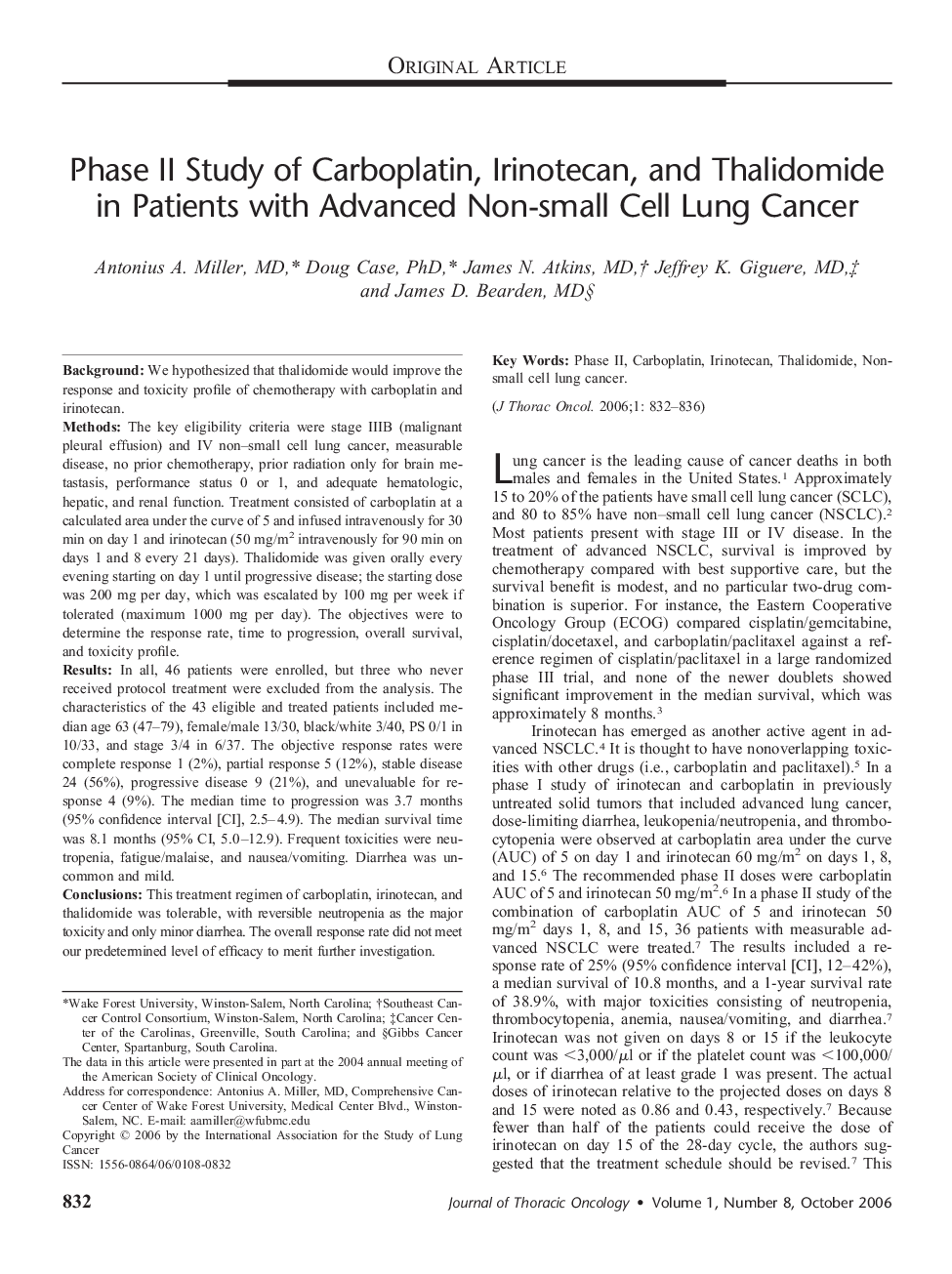| Article ID | Journal | Published Year | Pages | File Type |
|---|---|---|---|---|
| 3991733 | Journal of Thoracic Oncology | 2006 | 5 Pages |
BackgroundWe hypothesized that thalidomide would improve the response and toxicity profile of chemotherapy with carboplatin and irinotecan.MethodsThe key eligibility criteria were stage IIIB (malignant pleural effusion) and IV non–small cell lung cancer, measurable disease, no prior chemotherapy, prior radiation only for brain metastasis, performance status 0 or 1, and adequate hematologic, hepatic, and renal function. Treatment consisted of carboplatin at a calculated area under the curve of 5 and infused intravenously for 30 min on day 1 and irinotecan (50 mg/m2 intravenously for 90 min on days 1 and 8 every 21 days). Thalidomide was given orally every evening starting on day 1 until progressive disease; the starting dose was 200 mg per day, which was escalated by 100 mg per week if tolerated (maximum 1000 mg per day). The objectives were to determine the response rate, time to progression, overall survival, and toxicity profile.ResultsIn all, 46 patients were enrolled, but three who never received protocol treatment were excluded from the analysis. The characteristics of the 43 eligible and treated patients included median age 63 (47–79), female/male 13/30, black/white 3/40, PS 0/1 in 10/33, and stage 3/4 in 6/37. The objective response rates were complete response 1 (2%), partial response 5 (12%), stable disease 24 (56%), progressive disease 9 (21%), and unevaluable for response 4 (9%). The median time to progression was 3.7 months (95% confidence interval [CI], 2.5–4.9). The median survival time was 8.1 months (95% CI, 5.0–12.9). Frequent toxicities were neutropenia, fatigue/malaise, and nausea/vomiting. Diarrhea was uncommon and mild.ConclusionsThis treatment regimen of carboplatin, irinotecan, and thalidomide was tolerable, with reversible neutropenia as the major toxicity and only minor diarrhea. The overall response rate did not meet our predetermined level of efficacy to merit further investigation.
